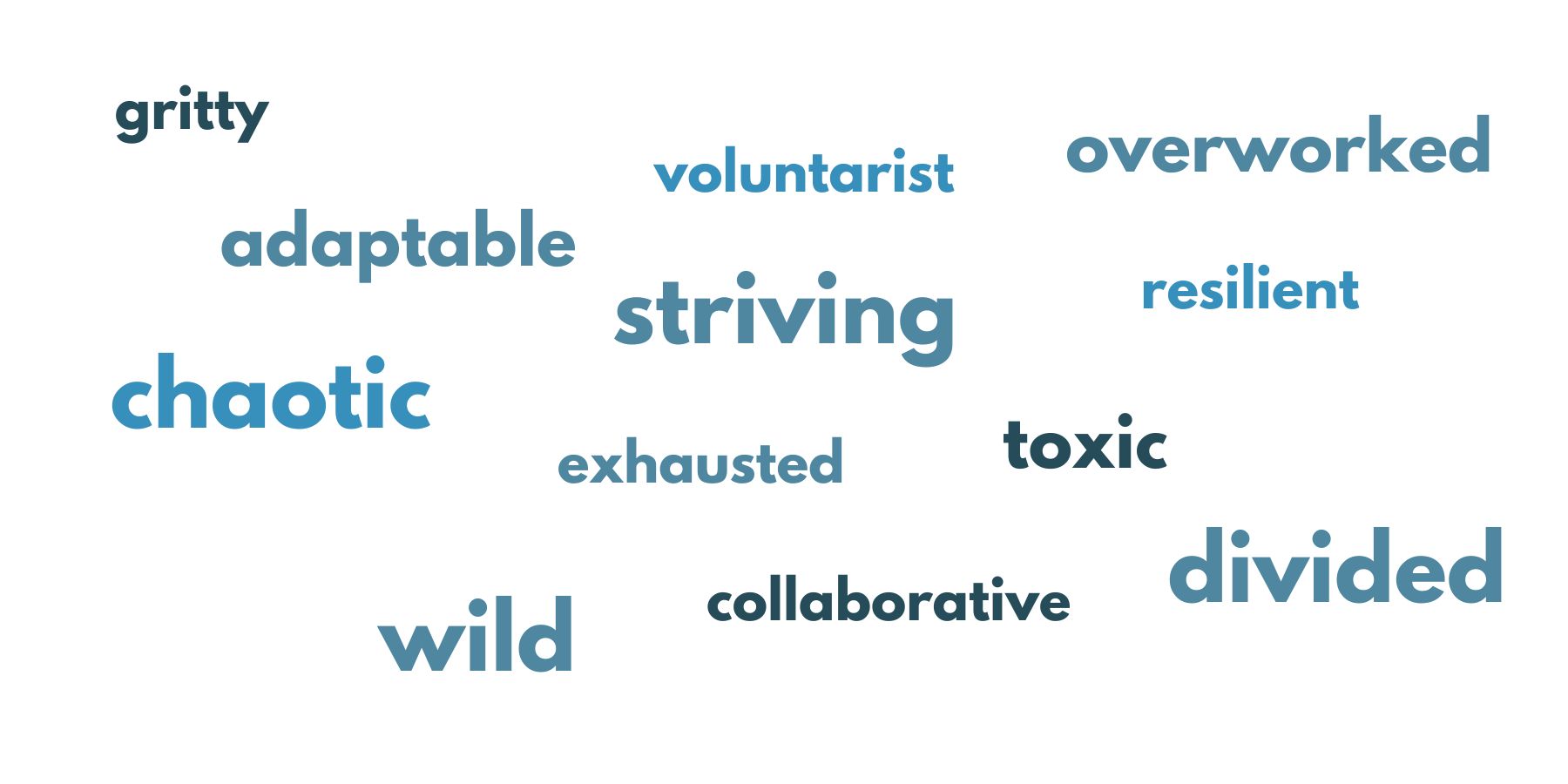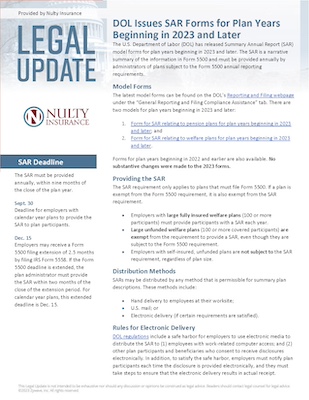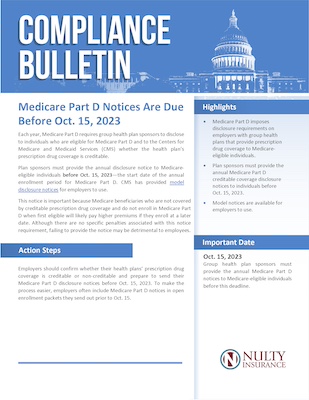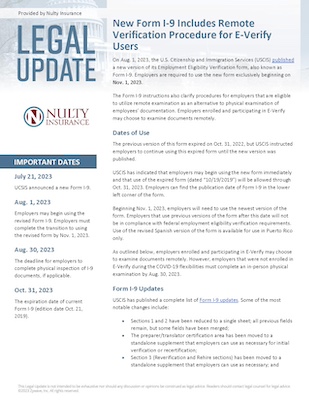
🗓️ September 2023
Keeping HR pros up to date with important compliance, benefits, and human resources information.
IRS Decreases ACA Affordability
The Affordable Care Act (ACA) affordability requirement is the highest percentage of household income an employee can be required to pay for monthly health insurance plan premiums. The threshold for affordability is adjusted annually by the IRS – these adjustments are based on health plan premium growth relative to income growth. The IRS uses national health expenditure data from the Centers for Medicare and Medicaid Services to adjust the affordability threshold.
For plan years starting in 2024, the ACA affordability percentage is 8.39% lowering it from the 2023 percentage of 9.12%. The 2024 threshold is a significant decrease from 2023 and it is the lowest since the ACA was implemented.
Applicable large employers (ALEs) with 50 or more full-time equivalent employees must offer at least one health plan that does not exceed 8.39% of an employee’s household income for self-only coverage. ALEs may rely on one or more safe harbors in determining if coverage is affordable: an employee’s W-2, an employee’s rate of pay and/or the federal poverty level. Employers can choose which safe harbor best suits their situation.
ALE’s will face penalties if they are not compliant with the ACA affordability requirements. Penalty A applies when an employer fails to offer minimum essential coverage to at least 95% of it’s full-time employees. Penalty B applies when affordable, minimum value coverage is not offered to all full-time employees, and at least one employee receives a subsidy when enrolling in Marketplace coverage. For 2024, Penalty A is set at $247.50 per month and Penalty B is set at $371.67 per month.
Employers should take a proactive approach by working with their Nulty agent to adapt to these changes and ensure their plans are in compliance to avoid potential penalties in addition to providing employees with access to affordable health coverage.
DOL Issues SAR Forms for Plan Years Beginning in 2023 and Later
The U.S. Department of Labor has released Summary Annual Report (SAR) model forms for plan years beginning in 2023 and later. The SAR is a narrative summary of the information in Form 5500 and must be provided annually by administrators of plans subject to the Form 5500 annual reporting requirements. This Legal Update provides more details.
Notices Update to Include QSEHRA
Small employers that sponsor QSEHRAs must provide a notice to all eligible employees. Federal tax law requires this notice to include specific information, including the maximum benefit available under the QSEHRA. Small employers may use this sample notice to address their QSEHRA notice obligation. It is based on the sample QSEHRA notice provided by the IRS in Notice 2017-67. It requires customization. Your employee benefits broker has likely already provided these to you, but here is a copy for quick reference. Please contact your trusted Nulty advisors with any questions you may have at compliance@nulty.com. We will be glad to help!
Survey Results from July
In the July newsletter, we asked you to share one word describing the culture of your organization. The image below is a powerful illustration of your answers. While not all these words reflect positivity, they all reflect honesty, and wherever you are today, growth can happen. Did you know that our team at Nulty works with our clients on cultural assessments to strategize on the best benefit offerings? We would love to help you next. Send us an email at compliance@nulty.com.

Medicare Part D Notices – Due Before October 15, 2023
Each year, Medicare Part D requires group health plan sponsors to disclose to individuals who are eligible for Medicare Part D and to the Centers for Medicare and Medicaid Services (CMS) whether the prescription drug coverage is creditable.
Plan sponsors must provide the annual disclosure notice to Medicare-eligible individuals before October 15, 2023 – the start date of the annual enrollment period for Medicare Part D. CMS has provided model disclosure notices for employers to use.
Employers should confirm whether their health plans’ prescription drug coverage is creditable or non-creditable and prepare to send their disclosure notices before October 15, 2023. For more information, please see attached.
EEOC Announces October 31st Opening & December 5th Deadline for 2022 EEO-1 Reports
Recently, the EEOC announced that October 31, 2023, is the date employers may expect the portal for submitting 2022 EEO-1 Reports to open. The EEOC also set a December 5, 2023, deadline for completion of the 2022 EEO-1 reporting submissions. The following entities are subject to EEO-1 reporting:
- A private employer that has 100 or more employees (with limited exceptions for schools and other organizations);
- A private employer with between 15 and 99 employees, if it is part of a group of employers that legally constitutes a single enterprise that employs a total of 100 or more employees; and
- A federal contractor that has 50 or more employees; is either a prime contractor or first-tier subcontractor; and has a contract, subcontract or purchase order amounting to $50,000 or more.
New Form I9 Includes Remote Verification Procedure for EVerify Users
Last month, the U.S. Citizenship & Immigration Services (USCIS) published a new version of its Employment Eligibility Verification form, also known as Form I-9. Employers are required to use the new form beginning on November 1, 2023. The Form I-9 instructions also clarify procedures for employers that are eligible to utilize remote examination as an alternative to physical examination of employees’ documentation. Employers enrolled and participating in E-Verify may choose. Please see attached for more information.
Other Topics to Be Aware Of:
- Medical Loss Ratio Rebates – Issuers that do not meet the applicable MLR standards must provide rebates to consumers by Sept. 30, 2023.
- FLSA Overtime – The DOL announced on Aug. 30, 2023 a proposed rule to amend current requirements that executive, administrative and professional employees must satisfy to be exempt from the FLSA minimum wage and overtime requirements. If finalized and implemented, the overtime protections will extend to approximately 3.6 million more workers in the country. Learn more…
- Student Loan Repayment – The pause on student loan payments has ended and payments will resume in October 2023. Employers can start helping employees in many ways, from formal benefit offerings to third-party resources. Every workplace is different, talk with a Nulty agent today on what offerings may meet the workforce’s needs.



